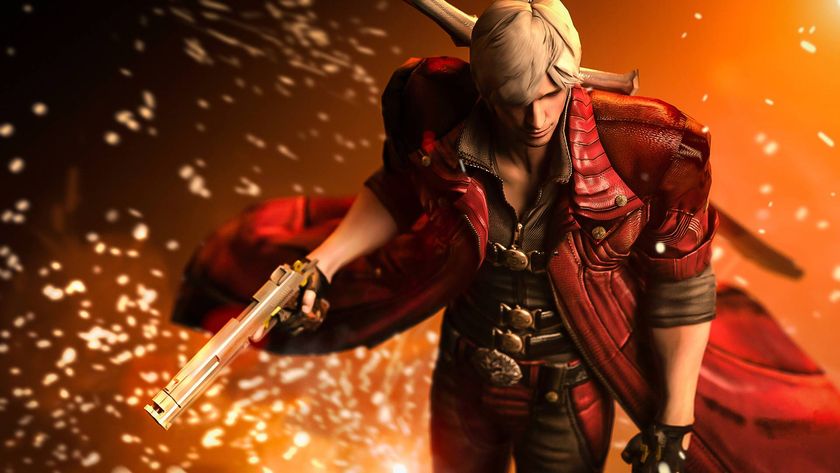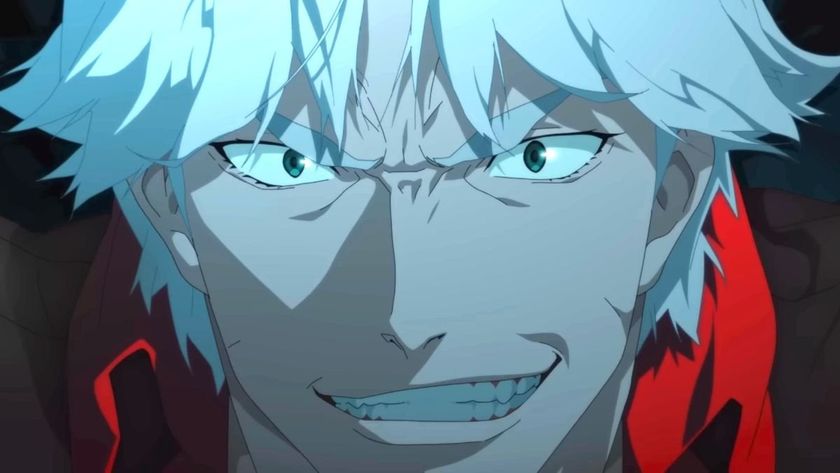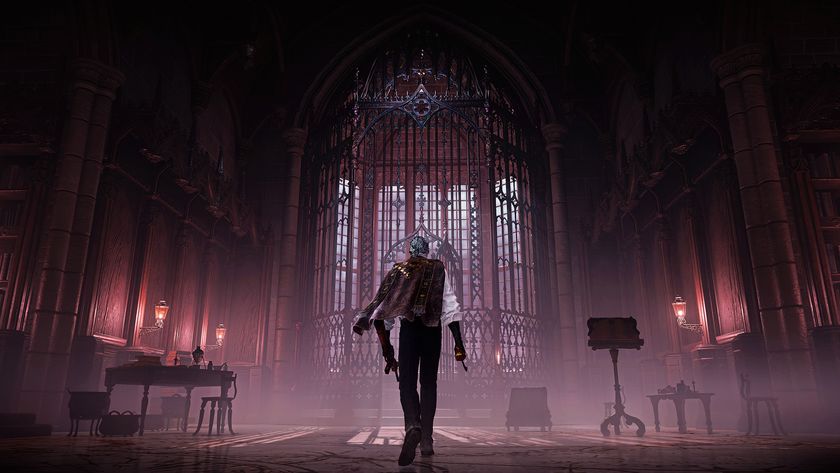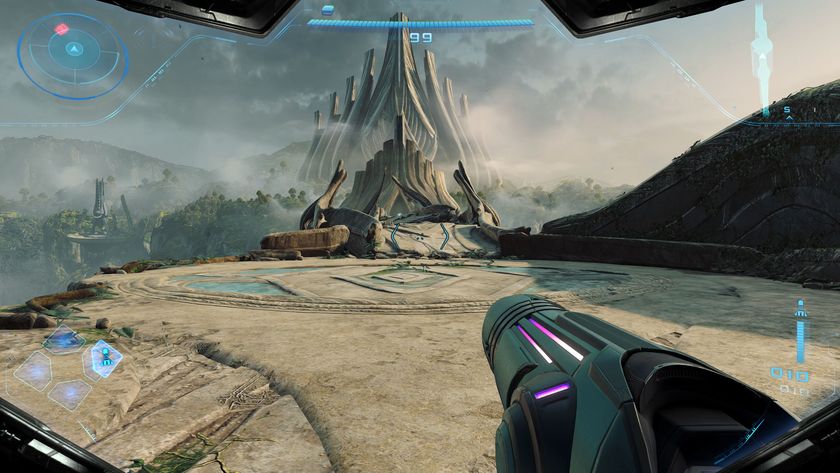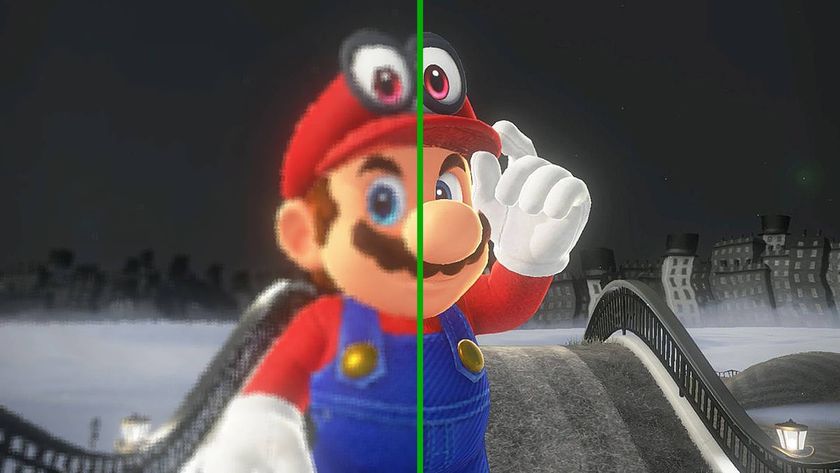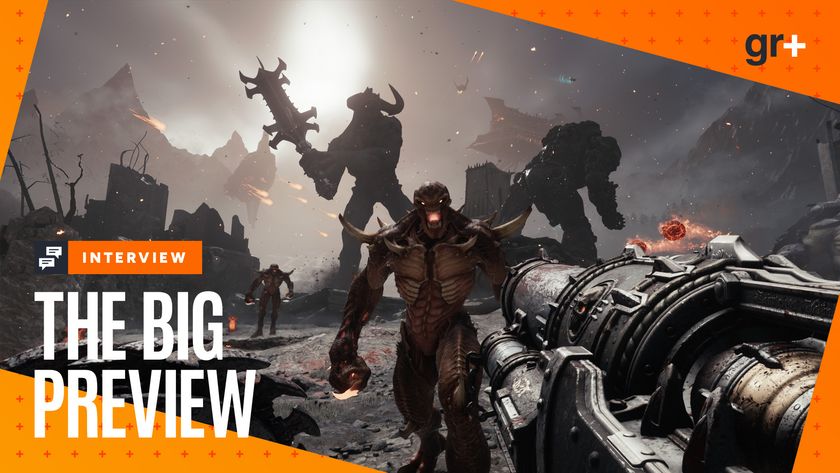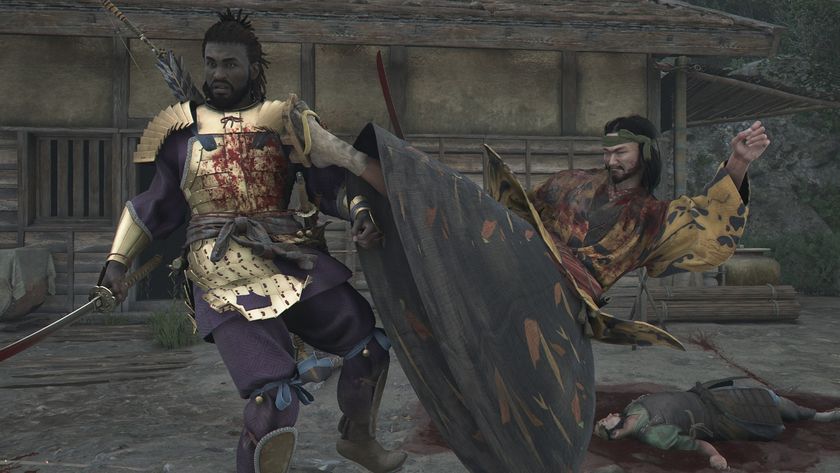DmC: Devil May Cry preview - A look at the Devils Dalliance
Dante’s origin story is looking as stylish as the man/demon himself
DmC: Devil May Cry is, if nothing else, a lightning rod for controversy. From the initial unveils of a new Dante (gasp! Dark hair! Black trenchcoat! For shame!) to the revelation that the origin story is in the hands of a non-Japanese developer, it’s a game that’s been mired in nitpicks and fan rage since its announcement. Yet for the nearly two years since its announcement, British developer Ninja Theory has quietly toiled away at the game. We got first hands-on at Captivate two months ago and were profoundly impressed. And at E3, Ninja Theory’s Tameem Antoniades showed off yet another impressive segment of the game titled “The Devil’s Dalliance.”
As was explained in our first hands-on, DmC throws Dante into a region called Limbo, a demon world that ordinary humans can’t see. In the Devil’s Dalliance, his partner-in-crime, Kat, is missing, and he must run a gauntlet against the will of a demoness overlord to find her. The catch is that these events put him in the middle of a nightclub. It’s a great opportunity to show off Ninja Theory’s stylized riffs on the series.
Dante slashes and brawls through a walled-in arena full of demonic creatures as the silhouettes of clubbers dance around them. In the meantime, the demoness is threatening him in the background. After breaking through the creatures, Dante advances through another area and is presented with a gauntlet of challenges, which literally are presented like a game show called “The Devil Has Talent.”
In these challenges, Dante must fight within other arenas to reach a stopping point. In a dose of Capcom homage, each one starts with a round number and a prompt to fight (a la Street Fighter). In the first one, Dante’s stuck in a chamber in which the floor tiles change color to symbolize the attacks he must use. If the floor glows blue, he must use angel attacks (if he doesn’t, he’ll be hurt), and if it glows red, he must use demonic attacks. It’s a great way to mix up the combat styles and heighten tension.
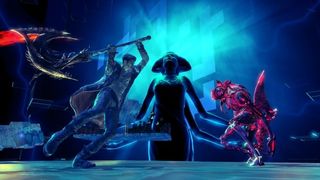
In another, he has thirty seconds to clear the chamber of demons. In the meantime, as he crosses from challenge to challenge, the nightclub transforms into a spectral tunnel that twists and warps the environment and the soundtrack to create a lively and eye-catching stage. It’s full of colorful neon blocks and bright ad hoc translucent bridges almost reminiscent of something in a Mario game. You can see the visual pulse of the electronic beats playing for clubbers in the real world and the throbs of the reddish demonic skies in limbo, all set to the rhythm of the music. Seldom has a disco ball seemed so menacing. And, to unlock each translucent bridge, Dante must leap into the air and smash into a block (which resembles a “Play” button on an MP3 player) to open the path. It all wonderfully dovetails with Ninja Theory’s visual motifs for the game.
But the part that most caught our attention, alongside what might be the most cleverly designed nightclub level of a videogame (Max Payne 3 aside), was the unveiling of Dante’s Devil Trigger attack. Remember how fans were so upset about Dante’s new look? Remember how Ninja Theory mentioned that DmC is an origin story? Well, Dante’s demonic attack turns him into… classic Dante. As he summons his demonic powers for temporary invincibility, his hair turns silvery white and his trench coat shines demonic red. This revelation, of course, opens up a guessing game as to how he’ll gain that look permanently (we can’t help but to think, in a sick way of that “don’t make that funny face or it’ll stay that way” saying that parents tell their kids), but ultimately, this should end those angry Internet arguments about Dante’s look once and for all.
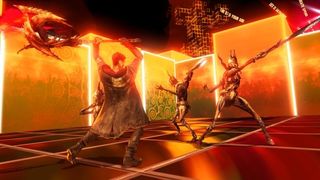
It looks like we’re still a half-year off from DmC dropping, but suffice it to say, Ninja Theory more than has our attention at this point. We’re eagerly looking forward to diving into Dante’s prequel come mid-January.
Sign up to the 12DOVE Newsletter
Weekly digests, tales from the communities you love, and more

